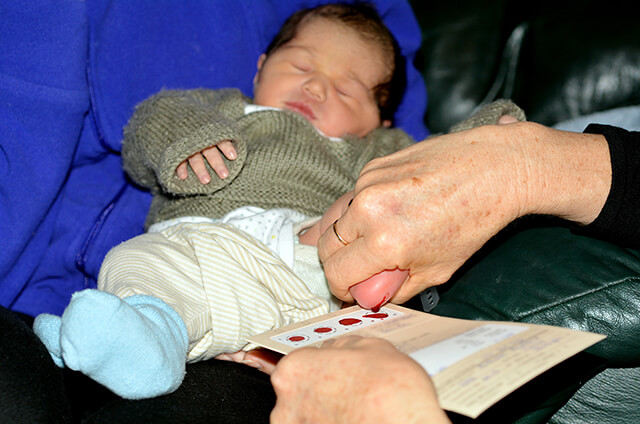Ada Hamosh, MD

- Dr. Frank V. Sutland Professor of Pediatric Genetics
- Professor of Genetic Medicine
Expertise: Clinical Biochemical Genetics, Pediatric Genetics, Medical Genetics

At the Metabolic Genetics Clinic, we specialize in the diagnosis and treatment of children and adults with inherited metabolic disorders, also known as “inborn errors of metabolism.”
Metabolism refers to all the chemical reactions that take place in our body to break down food to make proteins and other molecules. Our bodies use these proteins and molecules to function, release energy and convert excess nitrogen into waste products excreted in urine. Metabolic diseases occur when these chemical processes are interrupted, and are often due to enzyme deficiencies caused by errors in single genes. There are hundreds of inherited metabolic diseases. Most people with metabolic diseases begin experiencing symptoms in the newborn period or childhood, but in some, the disease becomes apparent in adulthood.
Many metabolic diseases are treatable. Early diagnosis and treatment may prevent permanent organ damage and death. Treatments vary based on the specific disease and often involve modification of diet and supplementation with specific medications, as well as preemptive inpatient care during infections. Other therapies include enzyme replacement therapy, hematopoietic stem cell transplantation, and organ transplantation gene therapy.
Appointment Scheduling: 410-955-3071
Metabolic Emergencies ONLY: To reach a member of the Metabolic Genetics Clinic on-call team, patients and health care providers should call 667-239-0265 (available 24 hours/day, 7 days a week). Metabolic emergencies may include high ammonia, metabolic acidosis, abnormal newborn screenings and pregnancy in patients with phenylketonuria or other inborn metabolic diseases. To request to transfer a patient who is an inpatient at another hospital to a hospital in the Johns Hopkins Health System, call the Hopkins Access Line.
Our team consists of geneticists specialized in metabolic disorders, two genetic counselors, a nurse manager, a metabolic dietitian and a clinic coordinator. Our outpatient Metabolic Genetics Clinic runs three days a week. To ensure timely and accurate diagnosis, we work closely with the Biochemical Genetics Laboratory at the Kennedy Krieger Institute. Our on-call team of metabolic doctors is available to our patients and families 24 hours a day, seven days a week. When our pediatric metabolic patients need inpatient hospital care, we admit them to Johns Hopkins Children’s Center under our own Metabolic Inpatient Service and serve as their primary inpatient caregiver team. When our adult metabolic patients need inpatient hospital care, we consult closely with the medical, surgical, gynecologic-obstetric or neurologic teams that are managing their care. Our team works with specialists throughout Johns Hopkins Medicine to ensure that you receive expert, coordinated care, including neurology, ophthalmology, audiology, cardiology, and transplant medicine.

Expertise: Clinical Biochemical Genetics, Pediatric Genetics, Medical Genetics

Expertise: Pediatric Genetics, Medical Genetics

Expertise: Clinical Biochemical Genetics, Medical Genetics

Expertise: Pediatric Genetics, Medical Genetics



